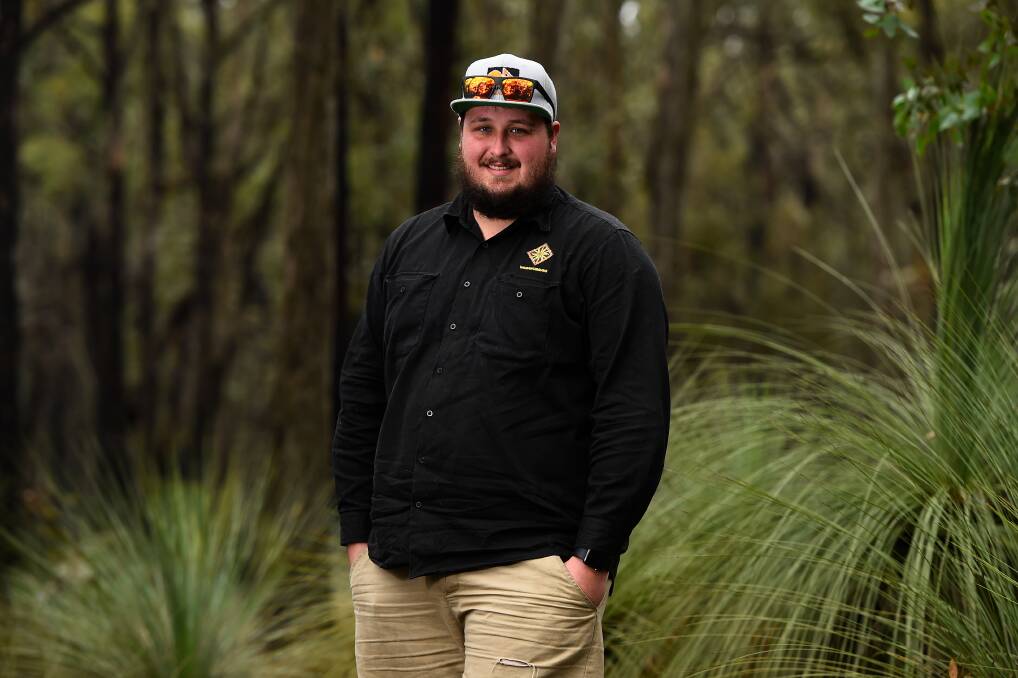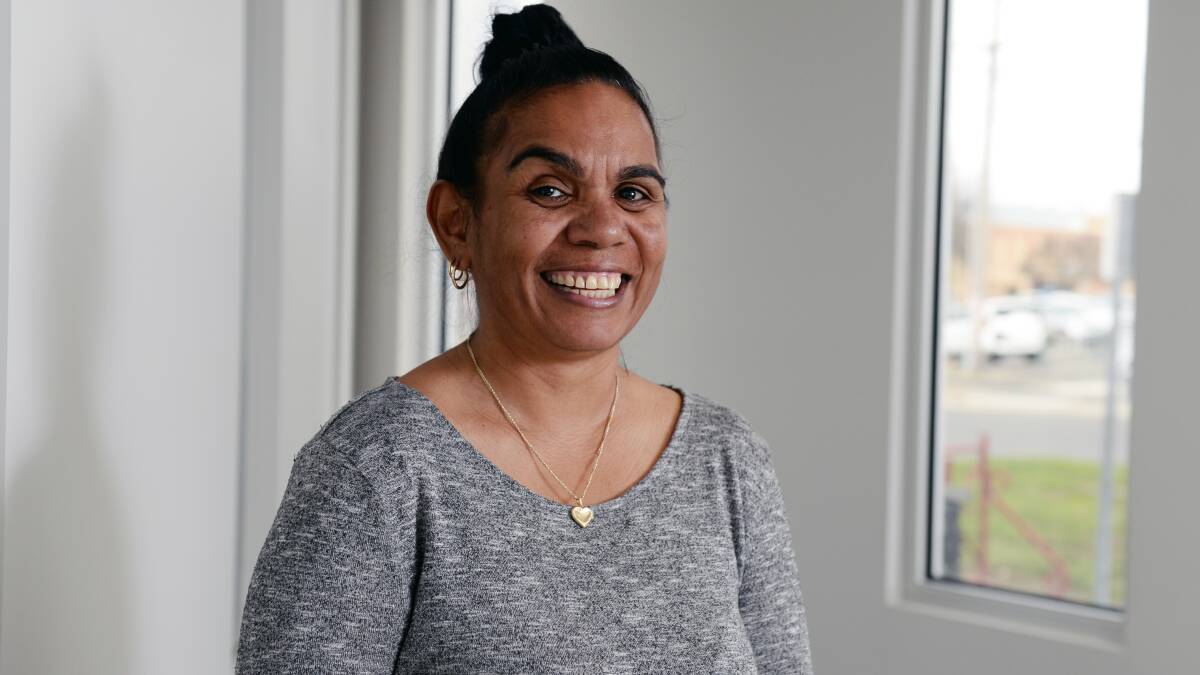
Finding courage in ability
BLAIR Gilson admits he did not consider himself a leader, apart from mentoring his peers on the job.
Subscribe now for unlimited access.
or signup to continue reading
Now, Blair is starting to see what his work and his abilities differently.
Immersed in his work with Wadawaurrung Aboriginal Coorporation, Blair's role as a field officer predominantly involves site inductions. He often has to try and convey to different workers items and areas of heritage significance for Aboriginal people - and it can often be hard to generate understanding.
A chance to take up a Bank Australia Indigenous Scholarship led Blair to Leadership Ballarat and Western Region leaders' forum. Gradually, as the program progresses, Blair is starting to view his work as a chance to generate greater cultural and social understanding in protecting and preserving sites of Aboriginal cultural significance.
Blair admits LBWR makes him uncertain and uncomfortable, even scared - but this is what he appreciates about it most.
"This is helping me going out of my comfort zone. If you're tunnel vision all the time, all you will see is racism but that's not always the way," Blair said.
"My wife is really good with helping me spot that out...People in the program are very open minded to me and what I have to say. They offer different things, different ideas, I wouldn't have thought about for how I could approach work."
This is helping me going out of my comfort zone. If you're tunnel vision, all you will see is racism but that's not always the way.
- Blair Gilson, Leadership Ballarat and Western Region participant
A Wadawurrung man. Blair said he did not grow up knowing a lot about his Aboriginal heritage but he was keen to learn about his country.
Blair would take time to visit and talk to aunties and uncles and "old people" to learn as much as he could.
This played a big part in his career path and it has not always been easy.
"There is a lot of racism in the job to block out - and that's a hard thing," Blair said. "When you work with people on a level they can understand, you can understand why they do and say what they do. I talk to people and help them to understand what we do, how we can work together. I really try to explain to them."
Blair also adapts this approach to each LBWR session, trying to understand others and their perspectives from a visit to Yuille Park Community College to spending time talking to prisoners at Langi Kal Kal, near Trawalla.
The LBWR program has been opening Blair's eyes to challenges others are confronting in the community - challenges he otherwise might have been blinkered against noticing.
One of the most profound program days for Blair was a cultural awareness session with Aboriginal woman and social worker Deb Milera and how she was able to work through similar issues in speaking up.
"This program is helping me build the courage to train our people and the strength to say to our people what we can do," Blair said.
Deb Milera's 'scary' journey to find her voice and just "be Deb"
THERE were a few times Deb Milera wanted to quit Leadership Ballarat and Western Region. She was scared.
A proud Narungga woman, hailing from South Australia's Yorke Peninsula, Deb had got out of her comfort zone plenty of times, but always with other Aboriginal people. Until LBWR.

It took Deb a couple of months to find her voice in the program. Five years after graduating, Deb said LBWR helped her find a platform to generate change for Aboriginal people by working alongside others in a way to benefit the whole community.
"(Then-LBWR chief Sofia Fiusco) put me in a syndicate of people with no idea of indigenous Australia. I understood the importance of it later on," Deb said.
"Being the lone Aboriginal woman among really confident people was really tough...In my 40s, I've learned it's okay to be me. A lot of people want to hear the story I want to tell, they're just not always sure how to make it better."
Deb's friend submitted her application for the 2014 and Deb was awarded the program's indigenous development scholarship. She was unsure what LBWR was all about until the opening retreat.
Session-be-session, the key Deb learned was she could talk to anybody - and she was going "to be Deb" regardless of who was at the table with her, no matter how important their titles might be.
Deb's parents were Stolen Generation. Her nana was a white man's slave at age 13. Deb knows it can be hard for others to digest, and she often came up against inherent racism. LBWR gave her hope that there are people in the community who will listen.
"It taught me the loudest person in the room was not often the best person. Leadership is about empowering other people, including the quiet people, for the better of all people and not just Aboriginals," Deb said.
"...We've got to recognise and acknowledge history in order to heal and make positive changes. We don't need to dwell on things but move forward."
Deb was chosen by her peers to speak on their behalf for the LBWR 2014 graduating class. Deb says this reinforced that what she has to say matters.
Have you signed up to The Courier's variety of news emails? You can register below and make sure you are up to date with everything that's happening in Ballarat.














